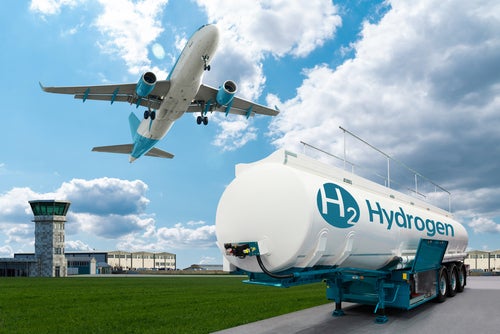Ethanol companies and major US airlines have co-authored a letter to the Biden administration supporting regulatory change that would make it easier for SAF made from corn-based ethanol to qualify for federal subsidies.
Under the Inflation Reduction Act, SAF producers have to cut their fuel emissions over gas by 50% using an emissions model developed by the International Civil Aviation Organization (ICAO), or “similar methodology”.
In a letter to Treasury Secretary Janet Yellen, airlines such as Delta, JetBlue and Southwest, and companies including Boeing and GE Aerospace, said the Department of Energy’s Greenhouse Gases, Regulated Emissions and Energy Use in Technologies model should be allowed alongside the one developed by the ICAO. The ethanol industry made the same request.
The letter, which was signed by ethanol companies including Poet and Archers-Daniels-Midland, said: “With the right market signals, we can de-carbonize aviation and spur a new wave of US innovation and clean energy jobs. However, modelling uncertainty today is a multiyear development problem.”
The letter was received by the White House yesterday, on the same day President Biden started his rural tour of the country in Minnesota.
The Treasury has the final decision on which modelling is chosen, but the agriculture, environment and energy departments have stepped in to mediate.
According to Reuters, the Treasury will make a decision in December.
SAFs are gaining prominence around the world. In September, the European Parliament accepted new rules that will increase the quantity of SAF required in flights departing from EU airports. The rules stipulate that a steadily increasing amount of green jet fuel must be blended with kerosene, with the level increasing every five years.
The law must still gain approval from member states in the European Council before being passed and coming into force on 1 January 2024.













